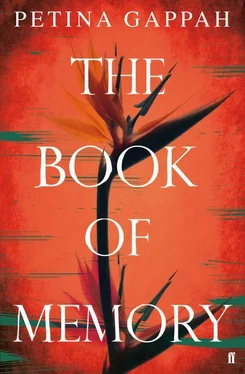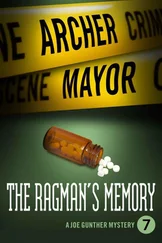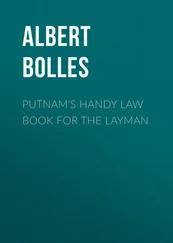Ruvimbo was a teacher at a school at a platinum mine near Kwekwe. She hit one of her young pupils so hard across the face that he fell and hit his head against the blackboard. He died after a concussion. She is serving six years for culpable homicide, just like Benhilda Makoni, who poisoned her married lover. Benhilda told the court that she had given her lover a powder that she had bought from a herbalist who specialised in love potions. She merely meant to turn his affections away from his wife, she said, but instead of turning to Benhilda, he went into some sort of anaphylactic shock and died. ‘Now,’ Benhilda says to us, her eyes shining with malice, ‘his wife does not have a husband either.’
Manyara is in for stock theft. She and her brothers stole five cows belonging to a farmer near their village in Chivhu. Each cow was considered a separate count, and each count carried three years, so she and her brothers were each sentenced to fifteen years, which were reduced to seven on review.
That is something that may interest you, by the way: that the magistrates here hand out stiffer sentences for stealing cows than for raping children. You only have to look at Sinfree’s case. She is from Binga, and is often the target of the guards’ wrath because she is Tonga and cannot speak Shona. She is here for attempted murder. Her maths teacher raped her when she was thirteen. Her teacher paid a fine for the crime. When she was sixteen, her family forced Sinfree to marry her rapist so that she did not have the shame of the rape following her all her life. After years of ill-treatment, she burned down his first wife’s hut.
Evernice Gundani was part of a protection racket in Mbare that promised market women security from harassment. The harassment came from Evernice herself, and her gang. She is serving six years for extortion.
Beulah Shereni is the youngest person in D. She should be in A category, with the other prisoners on remand, because she has not yet been sentenced. She has been on remand for more than a year. But in that time, she fought with the other women in A. After she tried to bite off the ear of a woman who had accused her of looking like a witch, Synodia decreed that she move to D, ‘where she belongs’.
Jimmy has served four of her six years for attempted murder. Her real name is Rejoice Saruchera, but she is called Jimmy for reasons you would not understand. Let me see if I can explain. There is a children’s game that is played to the rhyme:
Jimmy blue butter, Jimmy blue butter,
Zengeza my umbrella, my nylon,
My chachacha and my shoe!
I remember playing that game in Mufakose, or, I should say, watching the children on Mharapara Street playing that game while I imagined that I was a part of it, waving an imaginary umbrella, shaking the skirt of my dress at the chachacha , and sticking out my foot with a flourish at my shoe.
I don’t really know what it means; what do children’s rhymes ever mean? It is nothing more than a jumble of words and associations. The Zengeza of the rhyme is in Chitungwiza, where Jimmy lived before she came here. Jimmy looks like a cartoon lesbian would look, except that she has had sex with more men than all the women in this prison if they lived ten lifetimes. And she is not really from Zengeza, but from Chipinge.
Like our old neighbour MaiNever on Mharapara Street, Jimmy speaks in the lilting cadence of the Manyika dialect. ‘Ndakaende wonini,’ she says. ‘Ndakaringe wonini.’
She is in prison for biting the penis off a man who refused to pay her after sex at a nightclub. ‘Prostitute Bites Man’s Privates’ is a frequent enough headline in the papers to make it a commonplace occurrence, but Jimmy’s attack was so ferocious that her victim fainted from blood loss. When he recovered, it was to find that Jimmy had fled to the women’s toilets, where she spat out an essential part of him into Harare’s sewers.
Verity Gutu and Monalisa Mwashita should not be in D at all. They are both C-class offenders, each serving four years for fraud and theft by conversion. But they had money to bribe the guards into putting them into the comfort of D, such as it is.
Verity is the most notorious woman here. I remember reading about her when I came back from England; it was hard to miss her story because she was on every front page. The newspapers loved her: a beautiful woman, always groomed to the nines, who photographed well, gave good quotes and had a documented sexual history with well-known men. Verity is possibly the only prisoner here for whom remorse is a foreign word. She confesses freely to anyone who cares to ask that yes, it’s true, she defrauded the International Olympic Committee and she has nothing to be sorry about. ‘What they jailed me for is nothing compared to what I did,’ she says. ‘Who do you think bought my house and paid for my son to go to university?’
There is an Olympic programme to fund athletes from small, poor nations in sports that are not well known in their countries. Verity signed up Zimbabwean athletes to take up fencing, curling, the modern pentathlon, handball and the steeplechase. When the country failed not only to field a single athlete in these events, but also to hold any qualifying rounds at all before the last games, the Olympic Committee in Lausanne launched an investigation, which found that Verity had used the grant money to buy houses in Borrowdale Brooke and Zimre Park, a BMW and a Range Rover, and to pay for her son’s degree from a university in South Africa. The Olympics have also funded countless manicures, beauty treatments and shopping trips to Dubai.
Her case was messy and public. ‘Myself, if I choose,’ she says, ‘I can bring the Olympic movement to its knees.’
It makes me smile to imagine the collapse of the Olympics. From the naked Greeks racing for laurels to Hitler refusing to shake Jesse Owens’s hand, the whole Olympic movement could come crashing down because of Verity Gutu. She has her Protectors (the capital letter is hers); she has been the mistress of at least two high-ranking politicians, three businessmen and an assistant police commissioner. Between one and all of her former lovers, she is sure that she will be out soon. ‘Myself, I will be out faster than a javelin can land.’
If Verity Gutu is the Queen of Cynics, Monalisa Mwashita is their empress. She defrauded a European embassy of more than half a million euros over two years. She was a Special Projects and Programming Officer in charge of funding projects on sustainability, governance, accountability and the rule of law, one of those jobs for whom the phrase ‘job description’ was invented — a job that cannot be explained by a simple word like ‘lawyer’ or ‘journalist’, ‘technician’ or ‘accountant’.
Her job was to determine which projects should get how much of the embassy’s funding. She created two fake organisations, one for the Advancement and Empowerment of the Girl Child, and another to support OVCs caught up in political violence. ‘Girl Children,’ she says, ‘are the easiest con in the world.’
There is apparently no easier way to raise money from donors than to present a child, female and barefoot, with a plea for money to ward off all the dreadful things that could happen to it: the HIV infection, the orphaning, the household-heading, the poverty-miring and the single-mother-becoming.
Monalisa also realised that the term ‘political violence’ is to donors what Pavlov’s bell was to his dogs. She diverted funding to the fake group she had set up to ‘assist, encourage and raise awareness to further the empowerment of OVCs subject to political violence’. OVCs, if you are not up with donor lingo, are Orphans and other Vulnerable Children. More than food, shelter and all the rest of it, OVCs and Girl Children need empowerment — empowerment and awareness-raising.
Читать дальше












